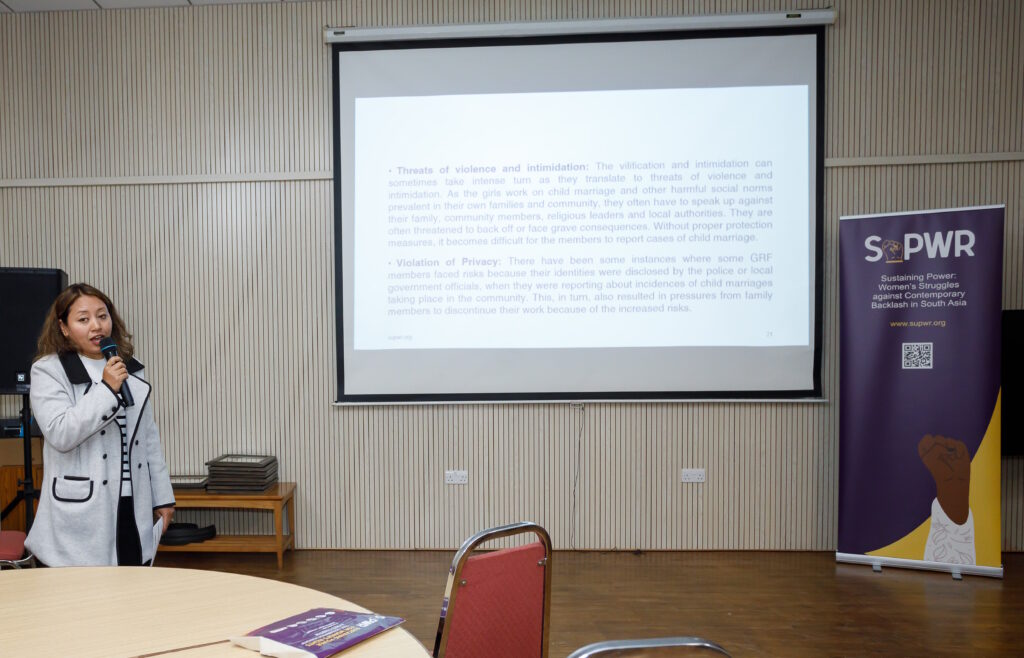Scars, stigma, wounds, trauma, blood, and bodies – that is what Hazara women who constitute a multi-layered minority in Pakistan have witnessed over the decades of experiencing violence. And yet, they remain unseen, their voices unheard and marginalised by the intersection of their gender, religious and ethnic identity.
As we celebrate International Women’s Day, it serves as a poignant reminder of the ongoing struggles for gender equality worldwide, necessitating the inclusion in these agendas of women who have faced systemic and systematic violence and exclusion. This year, the United Nations has underscored the paramount importance of ‘Investing in Women – A Human Rights Issue,’ stressing the necessity of channelling resources towards the most marginalized groups, including ethnic and religious minority women.
Hazara women under attack
The urgency of these interventions is apparent in Pakistan, particularly in conflict zones like Balochistan, where Hazara women have borne the disproportionate brunt of two decades of targeted terrorist attacks rooted in ethnic and sectarian divisions.
The ramifications of this violence are severe and far-reaching, encompassing sexual exploitation and abuse, online harassment, workplace discrimination, endemic poverty, and pervasive insecurity. Moreover, an estimated 3,000 Hazara widows in Quetta, the provincial capital of Balochistan, confront significant challenges, grappling with the loss of their primary breadwinners, escalating poverty rates, and the perpetual spectre of fear and intimidation perpetuated by terror groups.
Hazara women, especially those dwelling in conflict-ridden areas, find themselves increasingly ensnared in the treacherous web of online harassment and cyberbullying as they are subjected to character assassination as a shaming tactic. Simultaneously, those endeavouring to support themselves through employment encounter systemic workplace discrimination fuelled by their ethnic and religious identities, manifesting in unequal pay, limited career advancement prospects, and discriminatory hiring practices.
Moreover, the loss of family breadwinners due to targeted attacks has plunged countless Hazara women into dire financial straits, exacerbating their vulnerability and impeding their access to essential services such as healthcare, education, and housing. In my work, I have been made aware of tragic instances of some Hazara women becoming victims of sexual exploitation perpetrated by local aid agencies, enduring unspeakable physical and psychological trauma in the absence of effective law enforcement and protection mechanisms.
Compounding their plight, the pervasive presence of terror groups in Balochistan has engendered an atmosphere of fear and intimidation, severely curtailing Hazara women’s freedom of movement and curtailing their ability to actively engage in public life. Living under such precarious conditions has resulted in increased restrictions on mobility amid patriarchal control.
Despite such multi-faceted struggles, violence, and backlash, Hazara women have actively led protests, demanding accountability, even as they continue to challenge patriarchal social norms.
It is the international community and its mechanisms that need to step up and centre Hazara women’s voices and concerns and to invest in their well-being.
Constitutional safeguards are not enough
Despite Pakistan’s commitments as a signatory to numerous international human rights treaties and conventions, including the Universal Declaration of Human Rights (UDHR) and the International Covenant on Civil and Political Rights (ICCPR), Hazara women in Balochistan continue to endure systemic human rights violations. Article 25 of the Constitution of Pakistan ostensibly guarantees equal protection under the law for all citizens, irrespective of race, religion, or sex. However, the grim reality for Hazara women starkly contradicts these constitutional and international legal safeguards.
A call to action: invest in Hazara women
When we confront the stark reality that ethnic and religious minority women worldwide are routinely denied visibility and recognition, it becomes imperative for states and the global community to address their intersecting challenges and prioritize investment in their well-being and dignity.
In this context, investing in Hazara women in Balochistan transcends mere moral or ethical imperatives; it is an urgent legal obligation.
The international community must redouble its efforts to safeguard and empower Hazara women through targeted investments in education, healthcare, economic opportunities, and legal protections. This entails facilitating access to quality education and vocational training programmes to enhance employment prospects, ensuring the availability of essential healthcare services, implementing gender-responsive financing mechanisms, fortifying legal protections, and fostering awareness and advocacy initiatives to amplify their voices and mobilize support for their empowerment and protection.
Investing in ethnic and religious minority women all around the globe is not merely a human rights issue; it represents an indelible moral and legal imperative. By prioritizing their protection and empowerment, we can forge a more inclusive and equitable society that upholds the rights and dignity of all its members.
